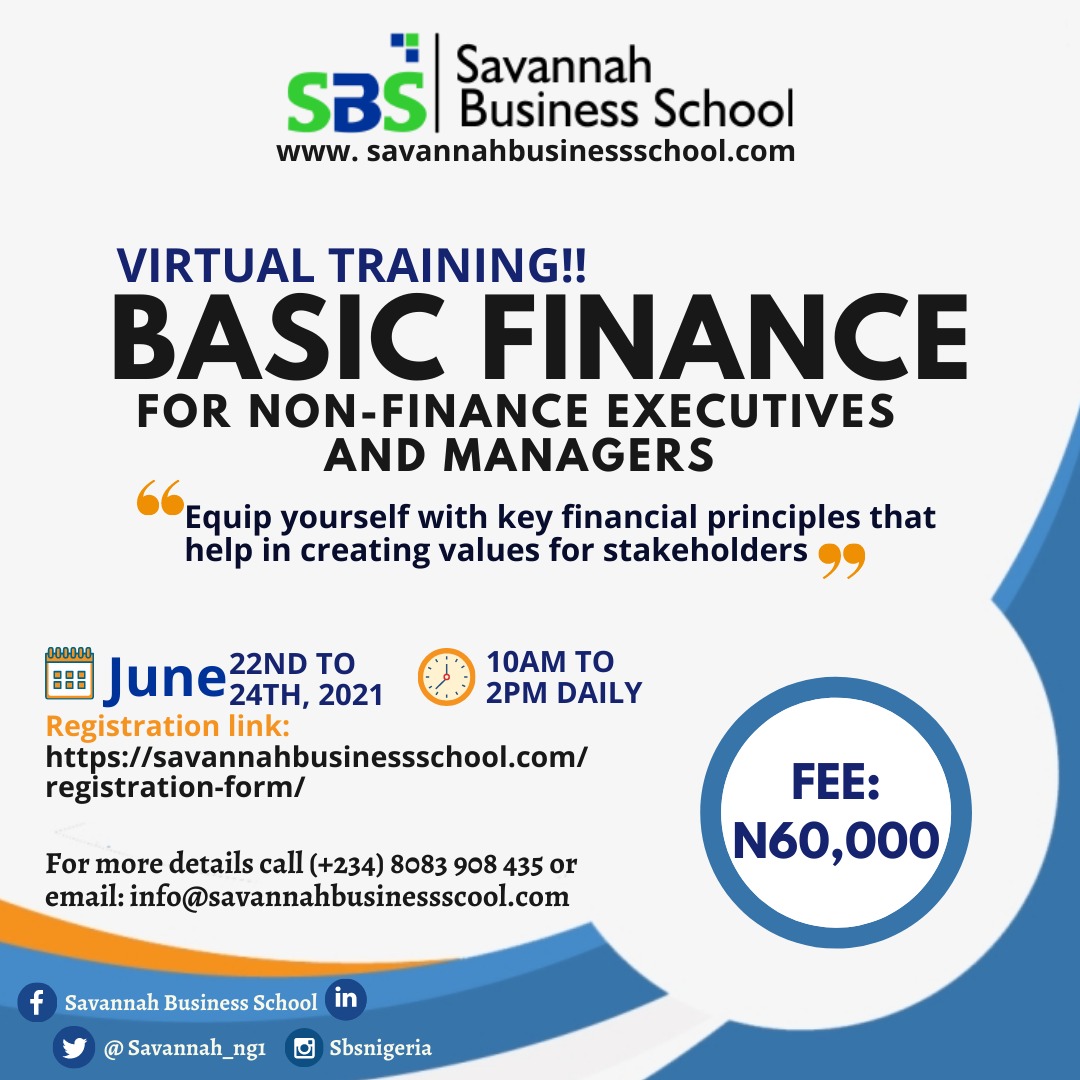The language of business is finance, and accounting is the feeder for financial decisions. Accounting and finance are troublesome subjects for a lot of non-finance and non-accounting executives. But basic knowledge of accounting and finance is very vital to function properly in any role in an enterprise. It is important that every executive and manager has basic accounting and finance knowledge to help in the appreciation of how a firm function and the impact of resource deployment and utilization. It is expected that the course will improve the participants’ understanding of the drivers of company performance and help them appreciate how to improve it..
DURATION – 3 DAYS
WHO SHOULD ATTEND
- Unit and departmental heads with no accounting or finance background
- Officers with prospects to be unit or departmental head or team lead without accounting or finance background
- Entrepreneurs and business managers without finance or accounting background
- Project managers without accounting or finance background.
OBJECTIVES
- To introduce participants to the basics and fundamentals of accounting and finance
- To expose participants to the basic vocabularies of accounting and finance
- To appreciate the role of accounting information in creating values for stakeholders of a firm
- To enable participants, appreciate the importance of cashflow management and profitability of a firm.
CONTENT
- Basic accounting and finance principles and practice
a. The objectives of the firm
b. The essence of financial information
c. Accounting concepts and principles
d. Organization of the finance function for value creation
e. Financial tools – financial statements, cashflow planning and time value of money. - Cost and pricing structures and management
a. Using costs in decision-making
b. Products pricing techniques
c. Measuring customer and product productivity - Short term financial planning and control
a. Using budgets for planning and coordination
b. Preparing budget
c. Efficacy of financial control – measuring performance - Working capital management
a. The cash conversion cycle
b. The cash budget
c. Managing current assets – cash and receivables, short term investment, inventories.
d. Managing payables – short term loans, taxes, accruals, etc.

